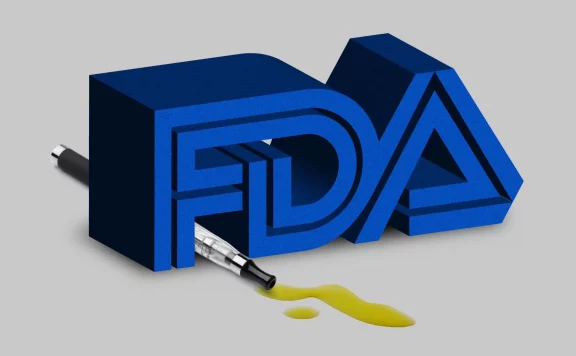After the Juul vape ban, the U. S. Food and Drug Administration (FDA) is considering changing its structure, funding, and functions following the troubles it has faced in the recent past with the certification of baby formula and e-cigarette products. The FDA Commissioner Robert Califf has requested a review of the agency’s tobacco and food programs. This comes after the agency has suffered from increasing criticisms following its handling of e-cigarette reviews and the baby formula shortage as a result of poor handling of the contamination problems at the largest baby formula plant in the country.
Califf reported that the Reagan-Udall Foundation will convene experts to review and report on the operation of both the tobacco and food arms of the FDA. The Foundation will look into questions relating to the structure, leadership, funding, and functions of the FDA arms and report on areas that need to be addressed. In the statement, cliff said that the FDA’s tobacco center was facing many challenges with policy and enforcement due to “an increasing number of novel products that could potentially have significant consequences for public health.”
Califf expects that the Reagan-Udall Foundation which is a congress-backed non-governmental research group formed to support his agency will work with different experts both within the FDA and outside to provide a broad range of options for helping the FDA solve its current challenges. He and his management team have already begun consulting outside stakeholders.
The announcement for the review of the FDA framework comes just a day before Califf takes the hot seat before the agriculture committee of the senate to answer pertinent questions regarding the FDA’s role in oversight of food safety in the country. Already dozens of consumer groups have been calling on Califf to appoint an officer that will oversee all the food safety operations spread across different centres. However, Califf says he believes it’s time for fundamental changes in how the FDA works not just appointing a single officer for the food program.
“I don’t think structure alone is the fix, or that leadership alone is the fix.” “There’s a consistent concern out there that we need to fix the fundamentals, which includes all those elements,” he said.
Califf has signaled that he agrees with the critics who claim that the agency’s food operations have been underfunded when compared with the drug program. This he says is the reason why the agency has been seeking more funding and authority for the food program in the recent past. He says this is the only way to ensure that there shall be no more shortages in the future.
Currently, the FDA is struggling with millions of applications from Vaping companies and has already missed the deadline for banning millions of illegal products that use unsafe synthetic nicotine. Califf hopes that with more funding and more authority to deal with the current issues the agency will be more robust in handling future challenges. Already many believe that Califf has done a good job in navigating the challenges the FDA has faced in the recent past.







